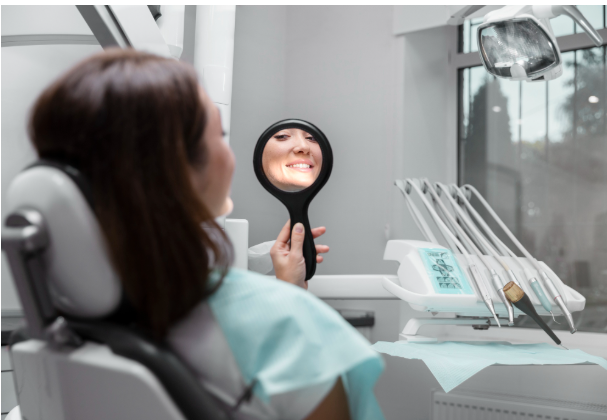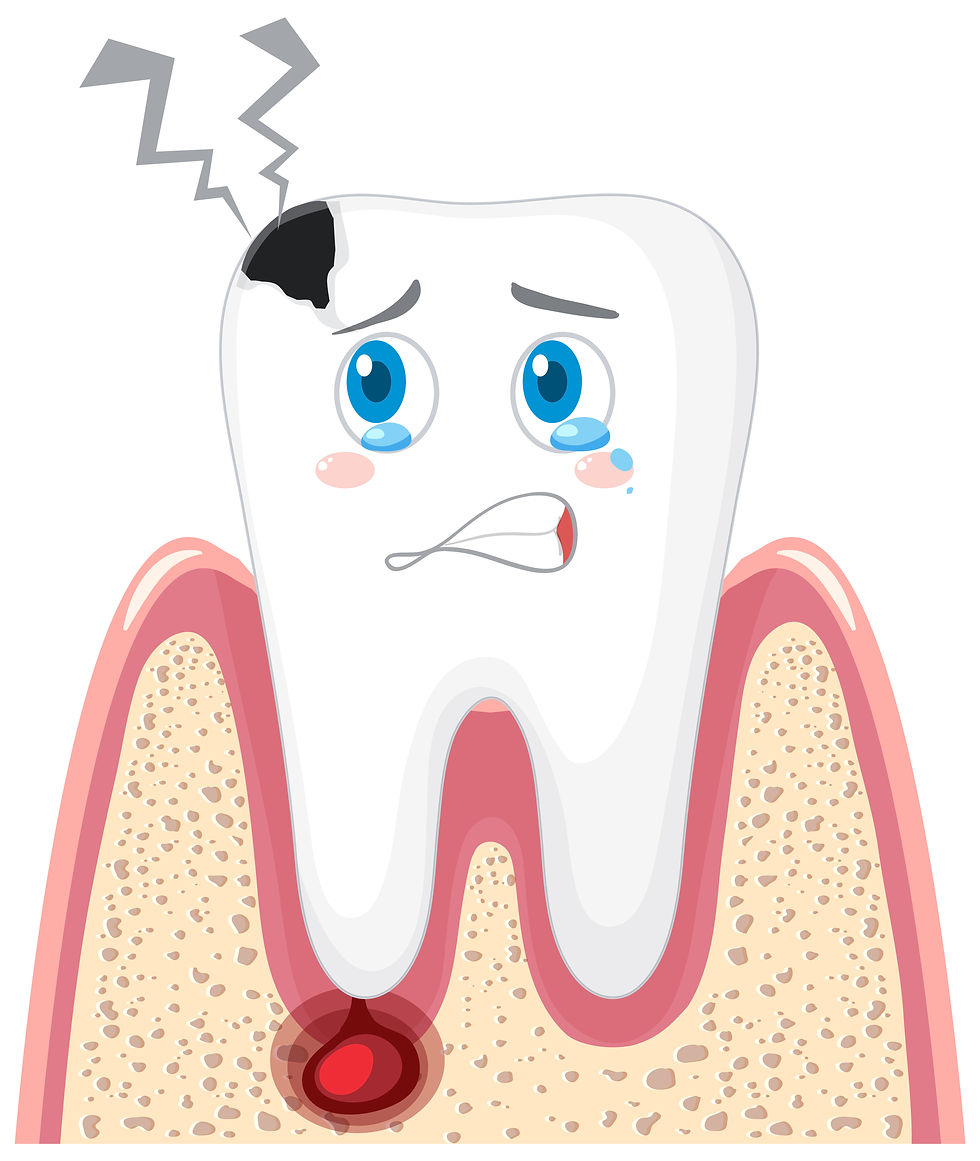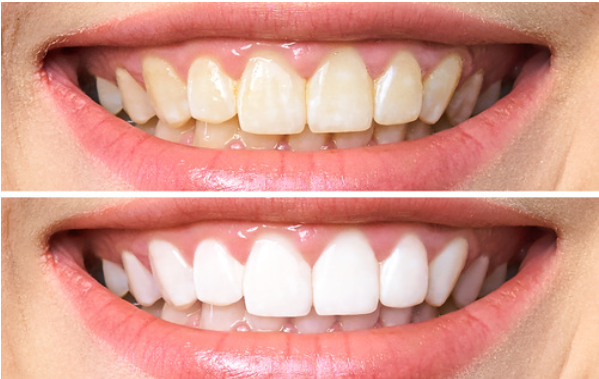Before and After Dental Implant Surgery: What Sacramento Patients Need to Know
- Dr Monica Crooks

- Aug 1
- 10 min read
If you're considering dental implant surgery, you likely have dozens of questions running through your mind. Will it hurt? What can I eat afterward? How long does recovery take? These concerns are completely natural – after all, dental implant surgery is a significant investment in your oral health and quality of life.
As someone who has helped thousands of Sacramento patients navigate their dental implant journey, I understand that knowledge reduces anxiety. This comprehensive guide addresses every question you might have about dental implant surgery, from preparation through complete recovery.
Understanding Dental Implant Surgery: The Basics
Is Dental Implant Surgery Actually Surgery?
Yes, dental implant surgery is considered oral surgery, though it's often less invasive than many people imagine. The procedure involves placing a titanium post into your jawbone, which will eventually fuse with the bone to create a stable foundation for your replacement tooth.
While it is classified as surgery, modern techniques – particularly surgically guided implant placement – have made the procedure more precise, comfortable, and predictable than ever before. Think of it as a carefully orchestrated procedure rather than major surgery.
Is Dental Implant Surgery Considered Major Surgery?
Dental implant surgery is typically classified as minor oral surgery, not major surgery. Most patients are surprised by how manageable the experience is compared to their expectations. Unlike major surgeries that require general anesthesia and extended hospital stays, dental implant surgery is usually performed in a dental office under local anesthesia.
However, the complexity can vary depending on factors like:
Number of implants being placed
Need for bone grafting
Overall health conditions
Location of the implants
Are Dental Implants Considered Cosmetic Surgery?
This is a common misconception. Dental implants are generally considered restorative dentistry, not cosmetic surgery. They're designed to restore function and health to your mouth by replacing missing teeth. However, the aesthetic benefits are certainly significant.
Most dental insurance plans recognize dental implants as a necessary treatment for replacing missing teeth, though coverage varies. If you're replacing a single missing tooth or multiple teeth that affect your ability to chew or speak properly, it's definitely restorative treatment.
Preparing for Dental Implant Surgery: What You Need to Know
Can You Eat Before Dental Implant Surgery?
This depends on the type of anesthesia you'll receive:
Local Anesthesia Only: You can eat a normal meal before your appointment. In fact, having something in your stomach can help prevent lightheadedness during the procedure.
IV Sedation or General Anesthesia: You'll need to fast for 6-8 hours before surgery. Your dental team will provide specific instructions based on your sedation type.
Pro Tip: If you're having local anesthesia only, eat a substantial but not overly heavy meal about 2-3 hours before your appointment. This gives you energy for healing while ensuring you're comfortable during the procedure.
What to Do Before Dental Implant Surgery
Proper preparation sets the stage for successful surgery and smooth recovery:
One Week Before:
Stop smoking (ideally permanently, but at minimum 1-2 weeks before and after)
Avoid alcohol
Continue taking prescribed medications unless instructed otherwise
Stock up on soft foods for recovery
Day Before Surgery:
Get a good night's sleep
Eat a nutritious dinner
Prepare your recovery area with soft pillows and entertainment
Fill any prescribed medications
Day of Surgery:
Wear comfortable, loose-fitting clothing
Arrange transportation if receiving sedation
Bring a list of current medications
Remove contact lenses and jewelry
Are You Awake During Dental Implant Surgery?
Most patients remain awake during dental implant surgery, but you have options:
Local Anesthesia: You're fully awake but completely numb in the treatment area. Many patients find this more comfortable than expected and appreciate being able to communicate with their surgeon.
Conscious Sedation: You're awake but deeply relaxed. Many patients don't remember much about the procedure afterward.
IV Sedation: You're in a twilight state – technically awake but very drowsy and unlikely to remember the procedure.
General Anesthesia: Reserved for complex cases involving multiple implants or extensive bone grafting.
Your comfort level and the complexity of your case will determine the best option for you.
During Surgery: What Actually Happens
How Long Does Dental Implant Surgery Take?
The duration varies significantly based on several factors:
Single Implant: 30-60 minutes Multiple Implants: 1-3 hours Full Mouth Reconstruction: 3-6 hours (often done in stages)
Factors Affecting Surgery Time:
Use of surgical guides (faster and more precise)
Need for bone grafting
Extraction of remaining teeth
Placement of temporary crowns
Modern surgically guided techniques can significantly reduce surgery time while improving accuracy. The 3D planning allows for precise placement, often cutting procedure time in half.
Post-Surgery Recovery: Your Complete Guide
Does Dental Implant Surgery Hurt?
Here's the honest truth: you will experience some discomfort, but it's usually much less than patients expect. At Dr. Monica Crooks, D.D.S., we’ve found that most patients describe the discomfort as comparable to having a tooth extracted—manageable and short-lived. With our gentle techniques and personalized care, we help make the process as comfortable as possible from start to finish.
Immediate Post-Surgery (0-48 hours):
Moderate discomfort managed with prescribed pain medication
Some swelling and minor bleeding
Difficulty with certain foods
Days 3-7:
Discomfort typically peaks around day 2-3, then gradually improves
Swelling may increase initially before subsiding
Most patients return to normal activities within a week
Individual Factors Affecting Pain:
Number of implants placed
Whether bone grafting was needed
Your personal pain tolerance
How well you follow post-operative instructions
How Long Does Pain Last After Dental Implant Surgery?
Typical Timeline:
Days 1-3: Moderate discomfort, easily managed with medication
Days 4-7: Significant improvement, over-the-counter pain relievers often sufficient
Week 2: Minimal discomfort, mostly when chewing
Week 3-4: Little to no pain in most cases
When to Be Concerned: Contact your dentist if you experience:
Severe pain that worsens after day 4
Pain that doesn't respond to prescribed medication
Signs of infection (fever, excessive swelling, pus)
Numbness that doesn't improve after several days
How Long Does Swelling Last After Dental Implant Surgery?
Swelling follows a predictable pattern:
Days 1-2: Minimal swelling Days 2-4: Peak swelling (this is normal!) Days 5-7: Gradual reduction Week 2: Most swelling resolved Week 3-4: Complete resolution
Managing Swelling:
Apply ice packs for 15 minutes on, 15 minutes off during the first 48 hours
Sleep with your head elevated
Avoid hot foods and beverages initially
Take prescribed anti-inflammatory medications as directed
Eating and Drinking After Dental Implant Surgery
What Can You Eat After Dental Implant Surgery?
Your diet will progress through several stages:
Immediate Post-Surgery (24-48 hours):
Cold, soft foods only
Ice cream, yogurt, smoothies
Lukewarm soup (not hot)
Mashed potatoes
Pudding and gelatin
Days 3-7:
Soft foods that don't require much chewing
Scrambled eggs
Soft pasta
Cooked vegetables
Fish
Rice (yes, you can eat rice after dental implant surgery, but ensure it's soft)
Week 2-4:
Gradually return to normal foods
Avoid very hard, crunchy, or sticky foods
Chew on the opposite side of the implant site
Foods to Avoid Initially:
Hard, crunchy foods (chips, nuts, raw vegetables)
Spicy foods that might irritate the site
Very hot foods and beverages
Alcohol (interferes with healing)
Small seeds that could get lodged in the surgical site
Can You Drink Coffee After Dental Implant Surgery?
Coffee lovers, I have good news and specific guidelines:
First 48 Hours: Avoid hot coffee entirely. The heat can increase bleeding and interfere with clot formation.
Cold Coffee: Yes, you can drink cold coffee after dental implant surgery, but limit caffeine intake as it can interfere with healing and pain medication.
After 48 Hours: Lukewarm coffee is acceptable, gradually returning to normal temperature as healing progresses.
Pro Tip: If you're a heavy coffee drinker, consider gradually reducing your intake before surgery to avoid caffeine withdrawal headaches during recovery.
What About Other Beverages?
Water: Your best friend during recovery. Stay well-hydrated to promote healing.
Alcohol: Avoid entirely for at least 48-72 hours, longer if taking prescription pain medication. Alcohol interferes with healing and can interact dangerously with medications.
Carbonated Drinks: Avoid for the first week. The carbonation can irritate the surgical site and potentially dislodge blood clots.
Milk and Dairy: Generally fine and can provide beneficial protein for healing.
Using Straws: Avoid straws for at least a week. The suction can dislodge blood clots and interfere with healing.
Activity Restrictions and Guidelines
Can You Drive After Dental Implant Surgery?
Local Anesthesia Only: Yes, you can drive yourself home, though some patients prefer to have someone drive them due to residual numbness.
Any Form of Sedation: No, you cannot drive for 24 hours after receiving sedation. Arrange transportation in advance.
Pain Medication: If taking prescription pain medication, do not drive until you're no longer taking it and feel completely alert.
Exercise and Physical Activity After Dental Implant Surgery
First 48 Hours: Complete rest. Avoid all strenuous activity.
Days 3-7: Light walking is acceptable and beneficial for circulation. Avoid:
Heavy lifting (over 10 pounds)
Vigorous exercise
Activities that could result in trauma to the face
Swimming (risk of infection)
Week 2: Gradually return to normal exercise, listening to your body.
Week 3-4: Full activity resumption for most patients.
Why These Restrictions Matter: Increased heart rate and blood pressure can cause bleeding and interfere with healing. The temporary activity restriction significantly improves your outcome.
Can You Work After Dental Implant Surgery?
Most patients can return to work within 1-3 days, depending on their job requirements:
Desk Job: Often return the next day, though you may prefer to take 1-2 days off for comfort.
Physical Labor: Plan for 3-7 days off, depending on the extent of your surgery.
Public-Facing Roles: Consider any swelling when planning your return, typically 3-5 days.
Travel Considerations
Can You Fly After Dental Implant Surgery?
First 48 Hours: Not recommended due to pressure changes and limited access to your dental team if complications arise.
After 48 Hours: Generally safe for short flights, but consult with your dentist first.
Long Flights: Wait at least a week, as cabin pressure changes can cause discomfort and complicate healing.
Travel Tips:
Bring extra pain medication
Pack soft foods for the journey
Stay hydrated
Have your dentist's contact information readily available
Oral Care After Dental Implant Surgery
How to Clean Dental Implants After Surgery
Proper oral hygiene is crucial for successful healing:
First 24 Hours:
Don't rinse or spit vigorously
Gently dab the area with gauze if needed
Avoid brushing the surgical site
Days 2-7:
Rinse gently with warm salt water (1/2 teaspoon salt in 8 oz warm water)
Brush other teeth normally, avoiding the implant site
Use prescribed antimicrobial rinse if provided
After One Week:
Gently brush around the implant site with a soft-bristled toothbrush
Continue saltwater rinses
Gradually return to normal oral hygiene routine
Can You Use Mouthwash After Dental Implant Surgery?
Alcohol-Based Mouthwash: Avoid for at least a week, as alcohol can irritate the surgical site and interfere with healing.
Prescribed Antimicrobial Rinse: Use exactly as directed by your dentist.
Gentle, Alcohol-Free Rinses: May be acceptable after the first few days, but check with your dental team first.
Special Considerations
Can You Use a CPAP After Dental Implant Surgery?
If you use a CPAP machine for sleep apnea, you can typically continue using it after dental implant surgery. However:
Ensure the mask doesn't put pressure on the surgical site
You may need to adjust the mask position temporarily
Monitor for any increased discomfort
Consult with both your dentist and sleep specialist if you have concerns
Can You Blow Your Nose After Dental Implant Surgery?
If your implants are in the upper jaw, especially in the sinus area, avoid forceful nose blowing for at least two weeks. Gentle nose wiping is acceptable, but avoid creating pressure that could affect the implant site or disturb sinus membranes.
Can Dental Implants Move After Surgery?
Properly placed dental implants should not move. However, during the initial healing period (first few weeks), the implant is integrating with your bone. Excessive force or trauma during this time could potentially affect this process. This is why activity restrictions and dietary guidelines are so important.
If you notice any movement or looseness, contact your dentist immediately.
Medications and Antibiotics
Are Antibiotics Necessary After Dental Implant Surgery?
The use of antibiotics varies based on individual circumstances:
Routine Cases: Many dental professionals now avoid prescribing antibiotics for straightforward single implant procedures in healthy patients, as research shows they may not be necessary.
Higher Risk Cases: Antibiotics are typically prescribed for:
Multiple implants
Bone grafting procedures
Patients with compromised immune systems
History of implant complications
Specific medical conditions
If Prescribed: Take the entire course exactly as directed, even if you feel fine. Stopping early can lead to antibiotic resistance and potential infection.
Pain Management Strategy
Prescription Pain Medication: Take as directed, but don't wait for pain to become severe before taking your first dose.
Over-the-Counter Options: After the first few days, many patients can transition to ibuprofen or acetaminophen.
Natural Pain Management:
Ice application (first 48 hours)
Elevation while sleeping
Adequate rest
Proper nutrition to support healing
Long-Term Care and Expectations
How to Take Care of Dental Implants After Surgery
Immediate Healing Phase (First 3-6 months):
Follow all post-operative instructions carefully
Attend all follow-up appointments
Maintain excellent oral hygiene as healing progresses
Avoid habits that could compromise healing (smoking, excessive alcohol)
Long-Term Care:
Brush and floss regularly around your implant
Use an antibacterial mouthwash
Regular dental cleanings and checkups
Professional monitoring of implant health
Signs of Successful Healing:
Decreasing discomfort over time
Reduced swelling
No signs of infection
Stable implant (no movement)
What Can You Expect After Dental Implant Surgery?
Week 1: Focus on healing, following dietary restrictions, and managing any discomfort.
Weeks 2-4: Gradual return to normal activities and diet, with continued healing.
Months 2-6: Osseointegration occurs – your bone grows around and fuses with the implant.
Month 6+: Final crown placement and return to completely normal function.
Success Rates: Modern dental implants have success rates exceeding 95% when properly placed and cared for.
When to Contact Your Dentist
While complications are rare, contact your dental team immediately if you experience:
Severe pain that worsens after day 3
Signs of infection (fever, excessive swelling, pus, bad taste)
Excessive bleeding that doesn't stop with gentle pressure
Numbness that doesn't improve after several days
Implant feels loose or mobile
Allergic reaction to medications
Insurance and Cost Considerations
Does Health Insurance Cover Dental Implant Surgery?
Insurance coverage for dental implants varies significantly:
Dental Insurance: Many plans now provide partial coverage for implants, recognizing them as necessary restorative treatment rather than cosmetic procedures.
Medical Insurance: May cover implants in cases of trauma or congenital conditions.
Factors Affecting Coverage:
Reason for tooth loss
Your specific insurance plan
Whether the procedure is deemed medically necessary
Financial Planning Tips:
Verify coverage before treatment
Consider payment plans offered by your dental office
Explore healthcare financing options
Remember that implants are a long-term investment in your health and quality of life
Making Your Decision
Dental implant surgery represents a significant investment in your oral health, confidence, and quality of life. While the process requires patience and careful adherence to post-operative instructions, the results are typically life-changing.
The key to successful dental implant surgery lies in:
Choosing an experienced, skilled dental surgeon
Following pre and post-operative instructions carefully
Maintaining excellent oral hygiene
Having realistic expectations about the healing process
Remember, every patient's experience is unique. While this guide provides comprehensive information based on typical experiences, your dental team will provide personalized instructions based on your specific situation.
If you're considering dental implant surgery, schedule a consultation with a qualified dental professional to discuss your specific needs, expectations, and any concerns you may have. With proper planning and care, dental implants can provide decades of improved function, comfort, and confidence.
.png)










Comments